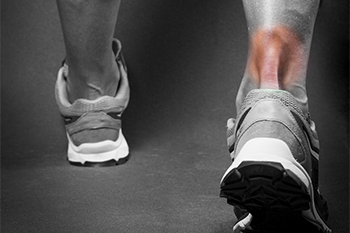
Achilles tendon injuries are becoming more prevalent, affecting young individuals with acute ruptures and older adults with chronic conditions. Acute ruptures are often related to high-energy sports in younger individuals and low-energy events in older patients. A missed diagnosis is not uncommon. Risk factors for Achilles tendon ruptures may include fluoroquinolone antibiotic use, rheumatoid arthritis, gout, and other medical conditions. Diagnosis involves a thorough physical examination, and sometimes an ultrasound, to confirm findings. Non-surgical management is increasingly favored for acute ruptures, with evidence showing good outcomes. This involves early immobilization and rehabilitation. Chronic conditions such as Achilles tendinopathy can benefit from early intervention and exercise. For more severe cases, surgery may be necessary. If you have injured your Achilles tendon, it is suggested that you make an appointment with a podiatrist who can provide you with a proper diagnosis and a tailored treatment plan.
Achilles tendon injuries need immediate attention to avoid future complications. If you have any concerns, contact Dr. Eddy Caldwell of Foot Care of Northeast Arkansas, P.A.. Our doctor can provide the care you need to keep you pain-free and on your feet.
What Is the Achilles Tendon?
The Achilles tendon is a tendon that connects the lower leg muscles and calf to the heel of the foot. It is the strongest tendon in the human body and is essential for making movement possible. Because this tendon is such an integral part of the body, any injuries to it can create immense difficulties and should immediately be presented to a doctor.
What Are the Symptoms of an Achilles Tendon Injury?
There are various types of injuries that can affect the Achilles tendon. The two most common injuries are Achilles tendinitis and ruptures of the tendon.
Achilles Tendinitis Symptoms
- Inflammation
- Dull to severe pain
- Increased blood flow to the tendon
- Thickening of the tendon
Rupture Symptoms
- Extreme pain and swelling in the foot
- Total immobility
Treatment and Prevention
Achilles tendon injuries are diagnosed by a thorough physical evaluation, which can include an MRI. Treatment involves rest, physical therapy, and in some cases, surgery. However, various preventative measures can be taken to avoid these injuries, such as:
- Thorough stretching of the tendon before and after exercise
- Strengthening exercises like calf raises, squats, leg curls, leg extensions, leg raises, lunges, and leg presses
If you have any questions please feel free to contact our office located in Jonesboro, AR . We offer the newest diagnostic tools and technology to treat your foot and ankle needs.





